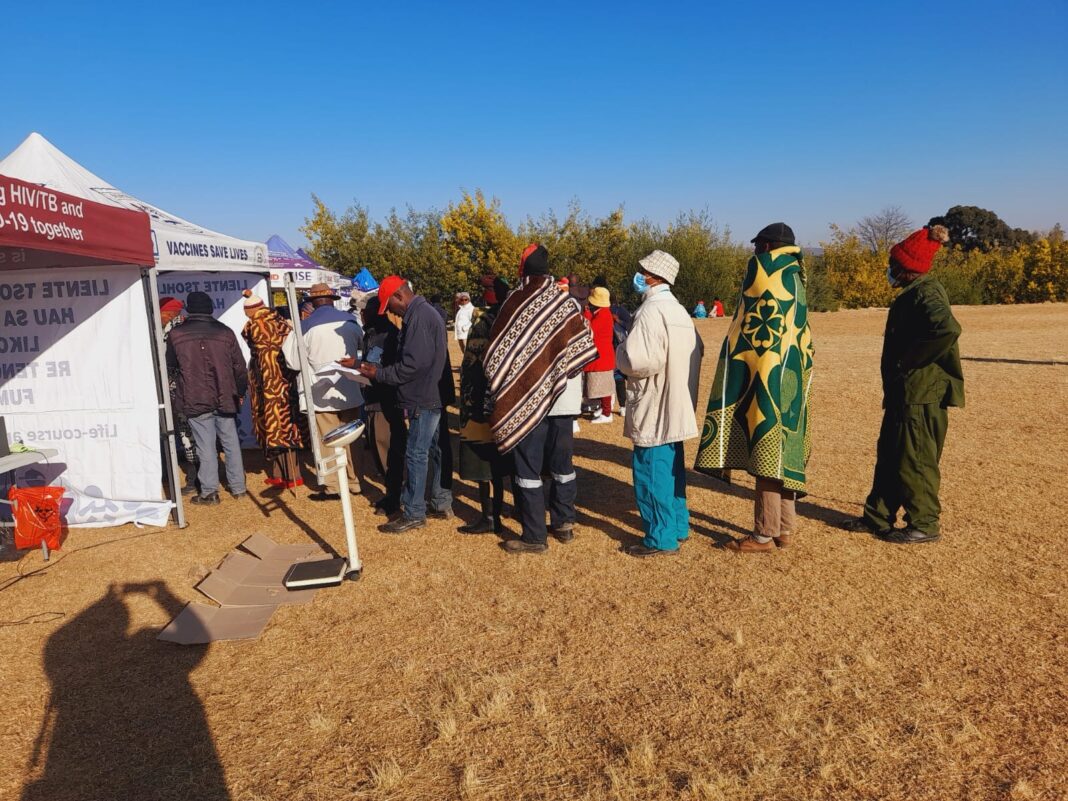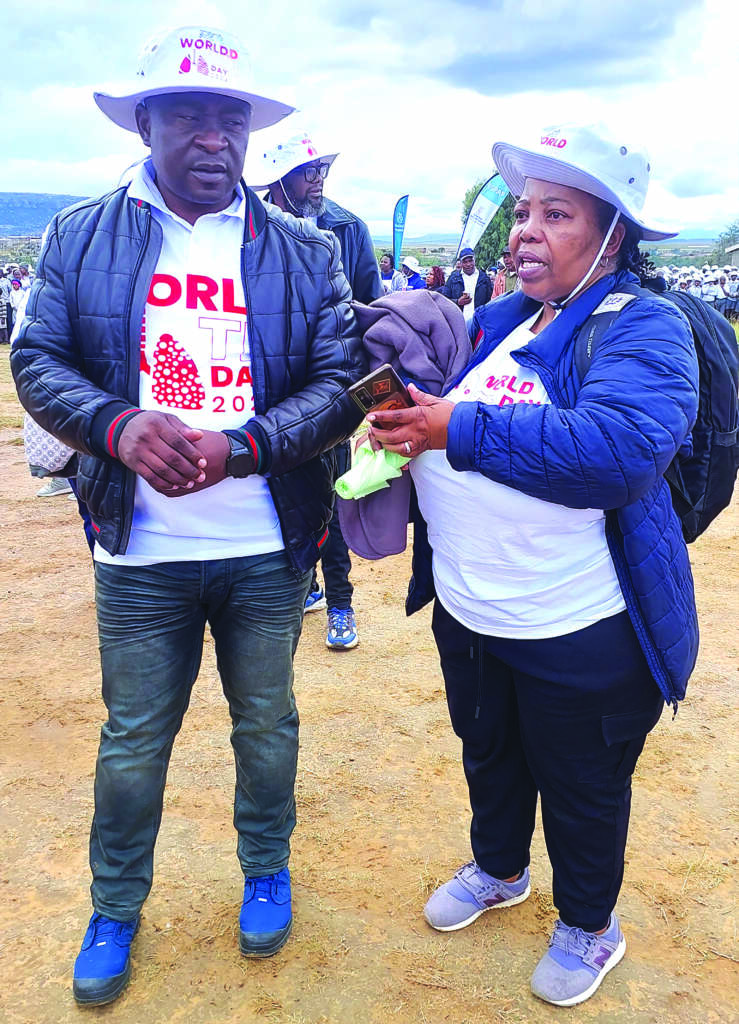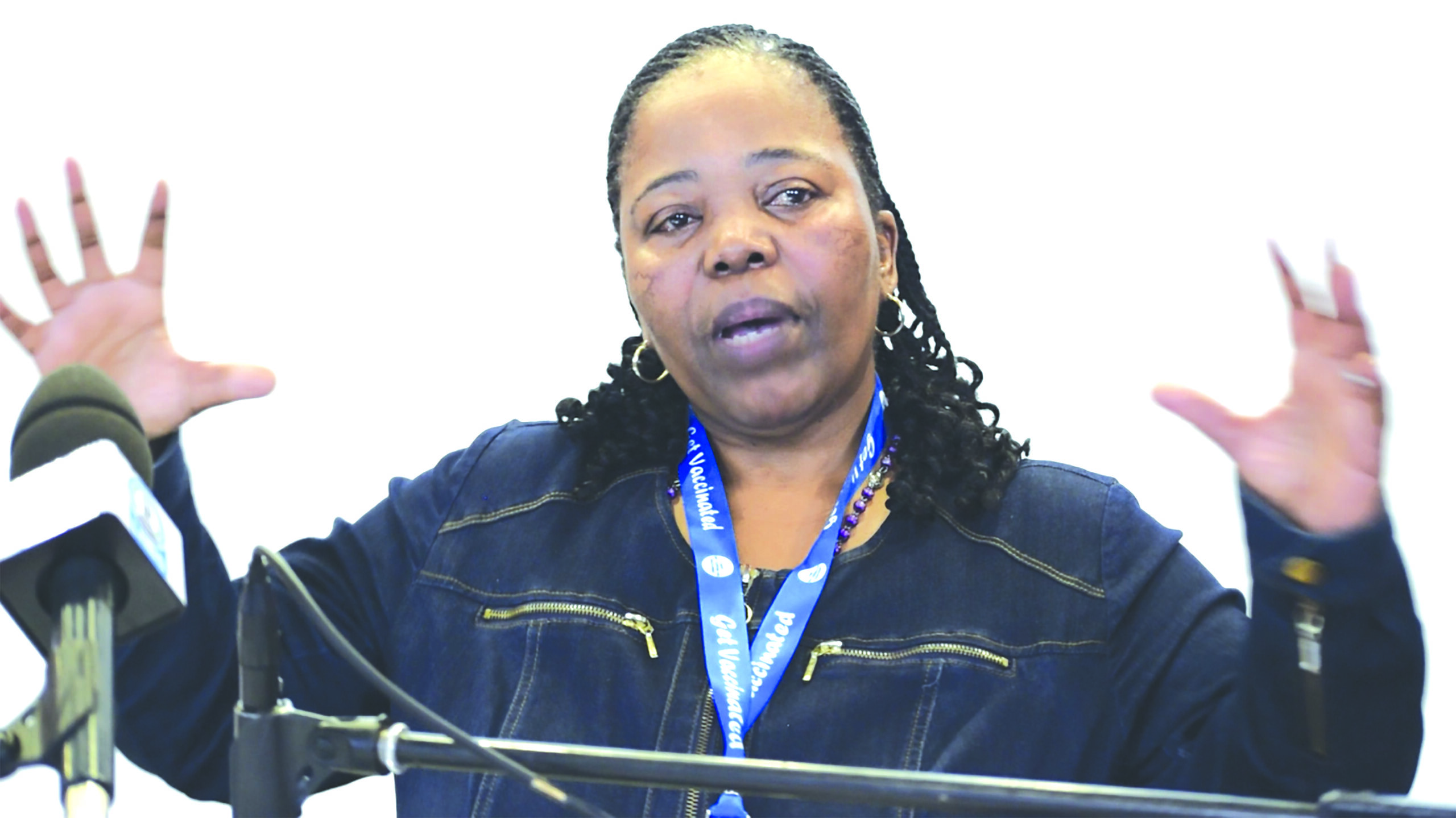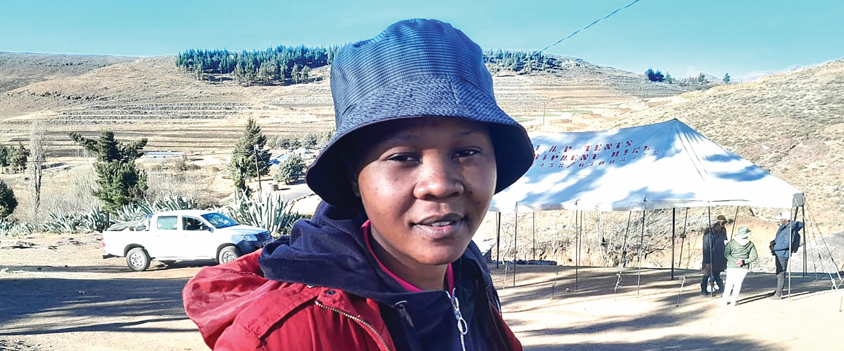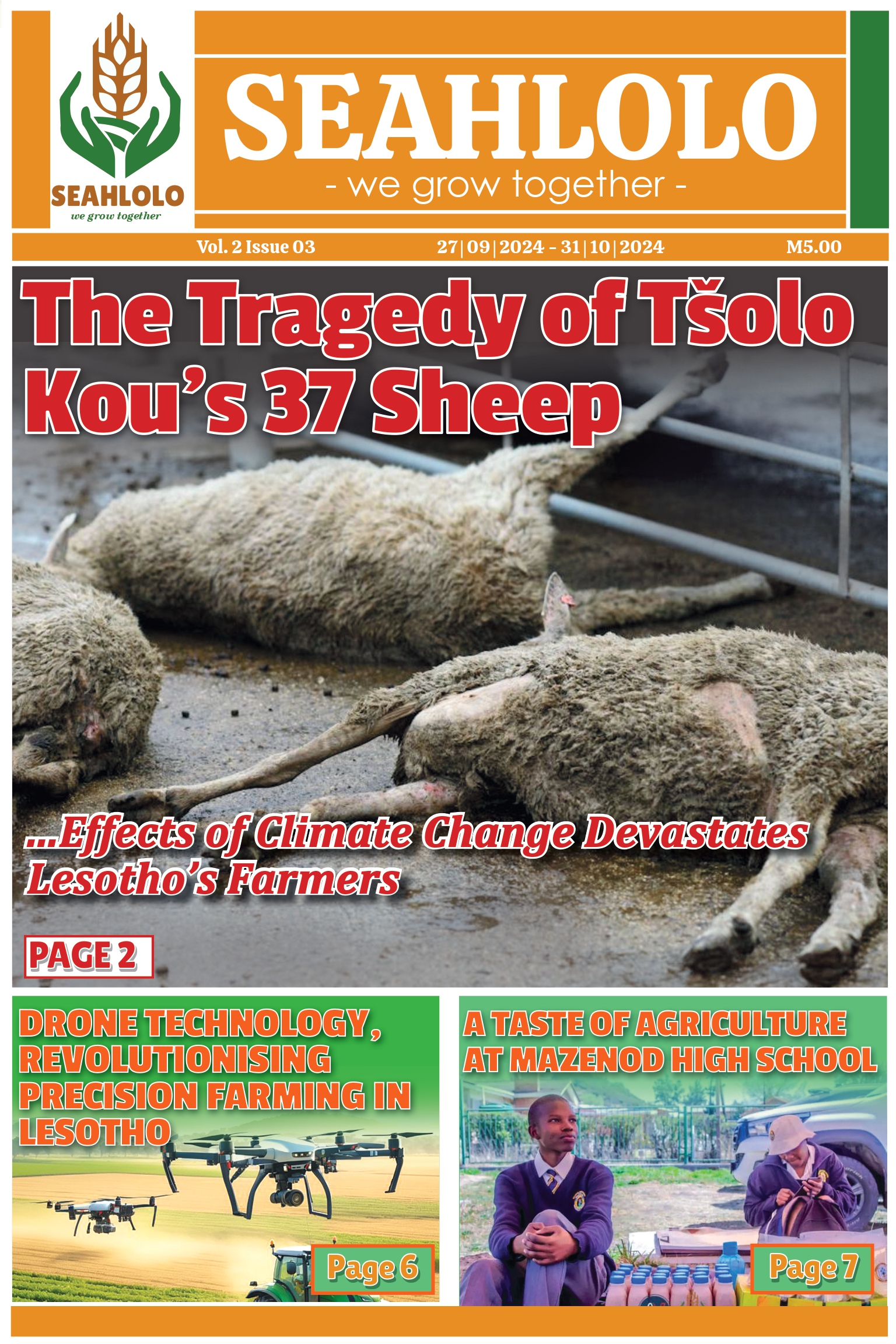Limpho Sello
In a concerted effort to combat the high prevalence of Tuberculosis (TB) in Lesotho, the Ministry of Health mobilised clinicians from twelve communities in Maseru for a two-week campaign that concluded on August 11, this year.
The campaign’s success was marked by the diagnosis and immediate treatment of 169 TB cases, a crucial step in breaking the transmission cycle of this infectious disease.
The campaign covered Ha Rapokolana, Ha-Ramabanta, Semonkong, Machache, Rothe, Ha Mokhalinyane, Ha Ntsi, Maama, Mahloenyeng and Mpatana communities.
“Enrolling 169 people on treatment means we have been able to cut the chain of transmission, (in simple terms) those people will not be able to transmit TB to the next person,†said the TB and HIV Coordinator of the Maseru District Health Management Team, Michael Mohlouoa.
According to the World Health Organisation (WHO), TB is the ninth leading cause of death globally. For decades, Lesotho has been at war with the disease which remains a major public health concern in the country.
WHO’s Global TB report focusing on Lesotho states that the country has the highest TB incidence in the world with 650 per 100,000 population.
For a country of 2.3 million people, TB mortality in Lesotho remains high at 53 per 100,000 population of HIV-negative persons, and 158 per 100,000 population among people living with HIV.
An estimated 34 percent of the estimated cases died in 2020 alone.
These harrowing statistics have since forced the Ministry of Health to embark on a nationwide campaign to eliminate TB and offer integrated health services to communities in Lesotho.
Upon wrapping up the campaign on August 11, Mohlouoa said it was important for Maseru to perform well and lead other districts in the elimination of tuberculosis because “if the capital (town) fails, the country fails.â€
“This exercise has given us direction in terms of which areas need immediate attention and greater focus in line with number of diagnosed cases in one area. We need to direct our resources in communities in order for us to find and put people on treatment,†Mohlouoa said.
Mohlouoa said in Maseru they were expecting that from last year and early this year, they should have notified 3500 TB cases but they are at 49 percent, that is, 1715 cases.
This means 51 percent, which is 1785 cases, is still roaming the streets transmitting to others.
The Maseru campaign was also clocked with challenges.
“We have a Semonkong patient who refused treatment,†Mohlouoa said.
“Plans are underway for him to undergo counselling sessions and ultimately enrol him on TB treatment.â€
Mohlouoa said the patient in question was previously removed from TB treatment by Queen ‘Mamohato Memorial Hospital to allow him to recover from a different health condition.
“He is now afraid that he will get sick with the same illness that hospitalised him,†he said.
Addressing Ha Ha-Ramabanta villagers in Maseru on 11 August, the Ministry of Health Director General of Health Services, Dr ‘Nyane Letsie, implored all Basotho to take TB infections seriously because Lesotho is facing a crisis’.
“Let us work hard to eliminate TB because it is preventable. However, once one is infected with TB, there is a high risk of transmittingg it to the next person. We have to take this crisis very seriously because it affects the country’s population and the government,†Letsie said.
She pleaded with community leaders to be on the alert for possible new TB infections. She also requested community leaders to throw their weight behind village health workers during the latter’s routine follow-ups on persons diagnosed with TB during the campaign.
Village Health Workers are key in the fight against TB because they visit TB patients daily to ensure that they adhere to their six-month treatment.
“We thank all the people who came to access these services. We want to assure you that this was not an act to make ourselves feel better but it is a new strategy to provide you with services you deserve,†Letsie said.
‘Mapoulo Mohapi is a Village Health Worker (VHW) of Mahloenyeng village in Matsieng. Mohapi has to date cared for over 40 TB patients.
She said most TB patients in Mahloenyeng are ex-miners and their family members.
“This is because TB is transmittable and in most cases, it spreads within households. Sometimes we care for more family members,†Mohapi said, adding that village health workers closely coordinate with health facilities to ensure that patients go to clinics and adhere to their treatment at home.
“We work collaboratively with community councillors, area chiefs and the community policing forums. Some patients, especially those from poor households, refuse to take medication because of hunger. They say side effects are very dire when they take medication on empty stomachs,†she said.
On her part, Mpatana Community Councillor, ‘Matumaole Kelepa, said her community is ravaged by TB and HIV.
“Although TB-related deaths have decreased, we are still battling with TB cases here. We used to bury three TB-related corpses in one weekend but now it is much better,†she said, pleading with the government to hold similar health services delivery campaigns quarterly,†Kelepa said.
Meanwhile, Maseru District Administrator (DA), Tšepo Joseph Lethobane, said the health services integration programme had a positive impact on the lives of people in Maseru, particularly residents in rural communities who struggle daily to access health services because of the lack of medical resources and the country’s terrain.
“We have been to several areas in Maseru. We found 24 in Ha Mokhalinyane; 24 more in Ha-Ntsi and 21 from Ha Rapokolana. Two critical TB patients in Ha Maama were immediately sent to the hospital. One was put on treatment and got discharged, the other patient was admitted to hospital,†Lethobane said.
He indicated that ex-miners were screened for TB and silicosis – a deadly respiratory disease that disproportionately black former and current miners in the southern African region.
A few years ago, a South African high court ordered that around 500 000 ex-miners infected with silicosis be paid out of M5-billion trust fund over a 12-year period.
Lethobane claims the government is helping families of silicosis-infected ex-miners receive compensation from the M5-billion which is being administered by Tshiamiso Trust.
WHO said the emergence of multidrug-resistant TB (MDR-TB) poses a major health security threat in Africa and that it risks reserving gains made in the right against TB.
Lesotho is also grappling with MDR-TB cases and there are currently 870 MDR patients receiving treatment.
Earlier this year, the Global Program Family Health and Infectious Diseases and Fund, TB Laboratory Strengthening project said the advent of COVID-19 reversed gains that had been made in the fight against TB globally because of similarities between TB and COVID-19.
The project’s officer for East, Central and Southern Africa Health Community Dr Miriam Urasa said the number of undiagnosed and untreated TB cases has exponentially increased, resulting in preventable deaths.
“Covid-19 caused a significant drop in the reported number of people newly diagnosed with TB from a peak of 7.1 million in 2019 to 5.8 million in 2020 (18 percent), (with) the African region least affected with 2.3 percent,†Dr Urasa said.
She said the successful elimination of TB is tied to early and accurate diagnosis and treatment, thus essentially reducing TB transmission, sickness and death. Dr Urasa said this also enables governments to enrol those at risk of being infected on TB Preventive Treatment.
Mohlouoa said part of Lesotho’s TB Preventative Treatment includes contact tracing.
“We have our contact tracing teams per facility. They are already doing screening of the contacts. For continuity, we made sure that respective health facilities individually initiate treatment to all their patients so that they can follow them throughout their care, even post this campaign,†he said.

